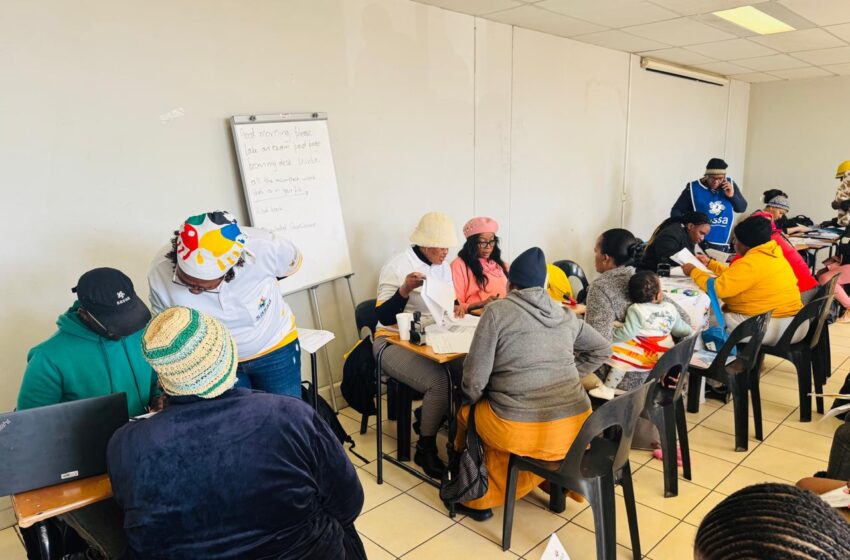Why SASSA is freezing some grants — and why people are angry about it

SASSA’s fraud crackdown under fire — Analysis of its impact, risks, and how trust can be restored
The South African Social Security Agency (SASSA) is facing mounting scrutiny following its decision to review the eligibility of over 210,000 social grant beneficiaries flagged for undisclosed sources of income. This ongoing crackdown has led to payment delays, demands for in-person verification, and in some cases, temporary suspensions—triggering a wave of public criticism, confusion, and frustration.
The Rationale: Why SASSA Is Cracking Down
At the heart of the initiative is the agency’s commitment to upholding the integrity of the social grant system, which supports over 18 million South Africans. Collaborating with registered credit bureaus, SASSA identified beneficiaries whose income activity may exceed the means test threshold, or who failed to disclose new sources of income after approval.
The move is anchored in the Social Assistance Act, which legally requires grant recipients to report any changes in financial circumstances. In principle, this is sound governance—it aims to prevent inclusion errors, curb fraud, and ensure limited resources reach the most vulnerable.
But in practice, the crackdown is proving problematic.
Rising Public Criticism: Why the Backlash?
Critics argue the process has been poorly communicated, with vulnerable recipients unfairly affected, especially those in rural areas or with limited digital access. Some beneficiaries claim they were unaware they had to report small income changes or are confused by notices demanding visits to local offices.
Civil society organisations have also questioned the timing and scale of the exercise, suggesting that it disproportionately affects the poor while leaving systemic inefficiencies in the grant system untouched. The agency’s reliance on credit bureau data has also raised privacy concerns and fears of misidentification, particularly among informal workers or people who receive once-off financial support from family.
The Implications: Social, Political, and Operational Risks
-
Erosion of Trust
SASSA is the face of social welfare in South Africa. Perceived heavy-handedness or administrative insensitivity can quickly erode trust—especially if many beneficiaries feel wrongly targeted.
-
Administrative Overload
Local offices are already strained. The demand for in-person verification from thousands of flagged individuals risks overwhelming frontline staff, causing delays that may spill over to unrelated applicants. -
Political Blowback
As elections approach, mismanagement of a core public benefit like social grants could fuel political backlash, especially in poorer communities heavily reliant on the system. -
Widening Inequality
If vulnerable citizens lose access due to red tape or miscommunication, the outcome is not only unjust—it directly contradicts the social protection goals of the state.
The Way Forward: Easing Tensions and Improving the System
To address the backlash and improve outcomes, SASSA should consider the following solutions:
1. Enhanced Communication Strategy
Clear, multilingual messaging via radio, SMS, WhatsApp, and community outreach is essential. Many beneficiaries lack internet access or formal literacy in legal terms. Simplifying communication can prevent panic and misinformation.
2. Grace Period with Support
Offer a reasonable grace period for flagged individuals to update their details without penalty. Pair this with mobile assistance units that reach rural and under-resourced areas.
3. Digital and Assisted Verification Options
While the online portal is useful, many users need help navigating it. Partnerships with community centres or NGOs could provide assisted digital verification services.
4. Transparent Appeals Process
SASSA must ensure that every affected person has access to an appeals process that is free, fair, and fast. Misidentifications must be corrected quickly to avoid unjust suspensions.
5. Data Accuracy and Protection
Engage independent monitors to audit how credit bureau data is used, ensuring that decisions are based on reliable information and that privacy is protected.
Balancing Accountability with Compassion
The challenge before SASSA is significant. It must eliminate fraud without undermining the very people it was created to serve. That balance—between accountability and compassion—must guide every decision from this point forward.
The current crackdown, while necessary, must evolve into a smarter, more inclusive, and more transparent process. Only then can public confidence be restored, fraud reduced, and South Africa’s social grant system preserved as a true safety net—not a bureaucratic trap.
READ ALSO
SASSA reveals how it flagged over 210,000 grant beneficiaries, gives reason
SASSA breaks silence on delayed grants, releases date to address negative criticisms, others

